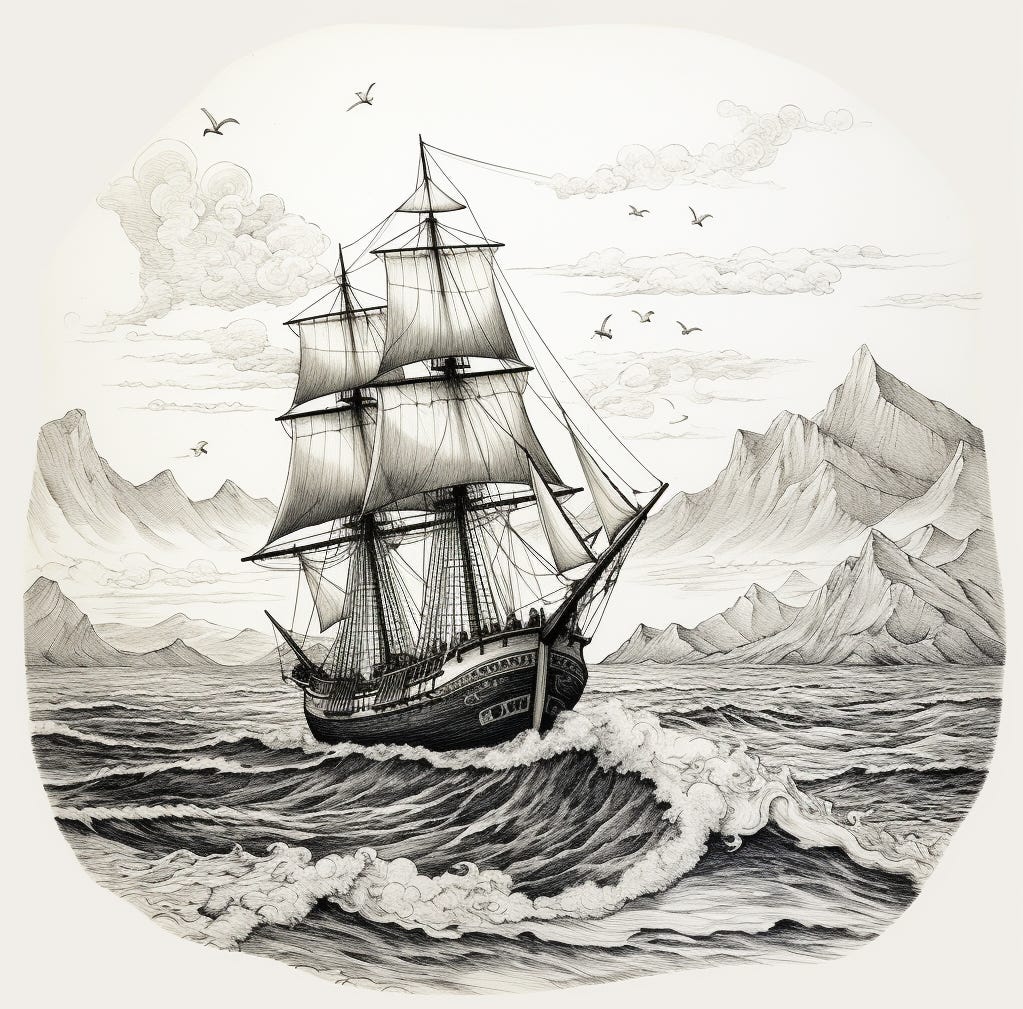Sea Lords and Privateers: The Forsyth Family's Naval Ventures
In the vast tapestry of Scottish history, where valor and cunning weave through the threads of time, the Forsyth family emerges as a lineage not confined to the moors and castles of their homeland but extending their saga to the high seas. Among their many distinguished roles, the Forsyths distinguished themselves as formidable sea lords and cunning privateers, navigating the turbulent waters of European politics and the New World's uncharted territories with equal prowess.
The Forsyth-Denys Alliance: A Maritime Dynasty Unfolds
The maritime saga of the Forsyths can be traced back to the strategic alliances they formed, marrying into the Denys family, known for their seafaring exploits and territorial governance in New France. This union was not merely a marriage of families but of ambitions and visions that spanned the Atlantic, forging a legacy that would sail through the annals of history.
Nicholas Denys, a key figure in this narrative, stands as a testament to the adventurous spirit that linked the Forsyths to the vast oceans. As the Governor of Acadia, Gaspesie, and New Foundland, Denys was not only a pioneer in the early colonization efforts of France in the New World but also a visionary who saw beyond the shores of his time. His exploits and endeavors in establishing trade, promoting settlement, and engaging in the intricate dance of diplomacy with both indigenous peoples and European powers underscore the Forsyth-Denys alliance's significance in the broader context of maritime history.
Privateering: A Strategic Chess Game on the High Seas
The Forsyths, leveraging their familial ties with the Denys, ventured into the realm of privateering, a sanctioned form of piracy that played a crucial role in the power dynamics of the high seas. Their privateers, sailing under the aegis of France, became a thorn in the side of the English, challenging their naval supremacy and disrupting their maritime commerce. These forays were not mere acts of piracy but strategic chess moves in the grand game of empire-building, where the Forsyths and their allies sought to carve out their dominion in the waters that were the lifeblood of the world's emerging global trade networks.
Moreover, the Forsyth family's involvement in privateering was intertwined with their staunch support for the Stuart cause, reflecting the complex interplay of loyalty, national identity, and personal gain that characterized the privateering enterprises of the time. Their ships, harbored along the west coast of Ireland and in secret coves of French territories, sailed under the dual banner of profit and principle, engaging in contraband trade that defied English laws and asserted a form of resistance against the encroaching influence of their powerful neighbor.
Legacy of the Sea: The Forsyth Influence on Maritime History
The Forsyth's naval ventures were a microcosm of the larger forces at play in the turbulent waters of the 17th and 18th centuries, where sea power was not merely a matter of naval might but of economic survival, political leverage, and the assertion of national will. Through their exploits at sea, the Forsyths embodied the spirit of their era—an age where the line between pirate and privateer was as fluid as the waters they navigated, and where the fortunes of families like theirs were irrevocably linked to the ebb and flow of the tides of history.
In recounting the seafaring legacy of the Forsyth family, we are reminded of the indelible mark they left on the maritime history of Scotland and beyond. Their story is a vivid illustration of how the Scots ventured far beyond their rugged shores, leaving an enduring legacy on the high seas that continues to captivate the imagination of those who are drawn to the lore of the ocean and the tales of those who dared to sail its vast expanse.





